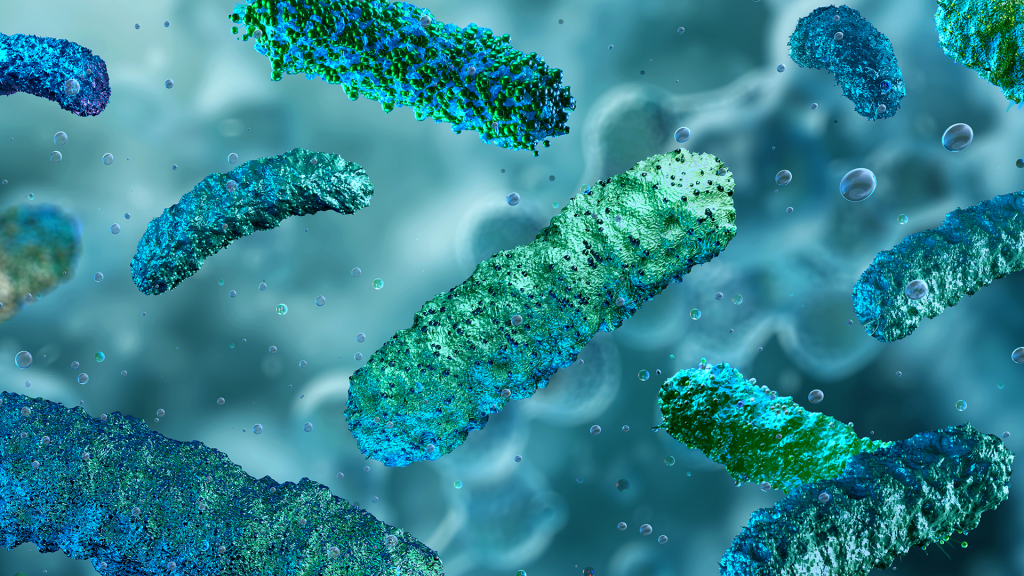-
Individualized Medicine
Vaginal microbiome may predict post-surgery urinary tract infections
A new Mayo Clinic study links specific microbial patterns to urinary tract infection risk following pelvic organ prolapse surgery
Each year, many women undergo surgery for pelvic organ prolapse, a condition where weakened muscles and tissues allow organs like the bladder or uterus to shift and press against the vaginal wall. This typically results in feelings of tissue bulging from the vagina, pelvic pressure or urinary issues.
While the surgical procedure often alleviates symptoms, many women experience a common post-surgical complication: urinary tract infections.
Now, researchers at Mayo Clinic, led by Marina Walther-Antonio, Ph.D., and John Occhino, M.D., have found a way to potentially predict who will develop these infections before surgery even begins.
Their study reveals that specific patterns in the vaginal microbiome — a community of microorganisms, including bacteria, fungi and viruses — could serve as early indicators of urinary tract infection risk. Their findings are published in Nature Scientific Reports.
Zeroing in on key bacteria
Their findings show that women with lower levels of the protective bacterial species Lactobacillus were more likely to develop urinary tract infections following pelvic organ prolapse surgery. In addition, they found that higher levels of Prevotella and Gardnerella — bacteria linked to inflammation and infection — are also associated with an increased risk of postoperative complications.


The research also provides insights on how surgery itself impacts the microbiome. Samples taken after surgery showed notable disruptions to both the vaginal and urinary microbiomes. These changes included lower microbial diversity, which can leave the body more vulnerable to infection.
The reasons for the changes are likely multifactorial and may include preoperative antibiotic administration, vaginal cleansing prior to surgery and surgery itself.

"Our ability to detect these microbiome patterns provides a potential opportunity to personalize treatment strategies and improve outcomes."
Marina Walther-Antonio, Ph.d.
"Our ability to detect these microbiome patterns provides a potential opportunity to personalize treatment strategies and improve outcomes," says Dr. Walther-Antonio, a microbiome researcher at Microbiomics Program at Mayo Clinic's Center for Individualized Medicine. Dr. Walther-Antonio also conducts research in the Departments of Surgery and Obstetrics and Gynecology, as well as the Mayo Clinic Comprehensive Cancer Center.
Dr. Walther-Antonio's collaboration with Dr. Occhino bridges a gap between cutting-edge research and clinical practice.
"Understanding the microbiome's role in post-surgical infections gives us a unique opportunity to possibly prevent these complications altogether," says Dr. Occhino, a Mayo Clinic urogynecologic surgeon. Dr. Occhino specializes in treating pelvic floor disorders, including conditions like pelvic organ prolapse and urinary incontinence.
Turning microbiome data into action
The study analyzed microbiome samples from postmenopausal women undergoing a vaginal hysterectomy with pelvic reconstruction. Researchers collected samples using vaginal swabs or urine collection at five stages, including before surgery, immediately after and during recovery. Advanced sequencing techniques were used to map the genetic material of the microbes and identify changes in the microbial communities.

"Understanding the microbiome's role in post-surgical infections gives us a unique opportunity to possibly prevent these complications altogether."
John Occhino, M.D.
Dr. Walther-Antonio and Dr. Occhino plan to expand their research to include larger and more diverse patient groups. This effort aims to confirm their findings and explore interventions. This could include using probiotics to restore microbial balance before surgery or adjusting surgical timing for at-risk patients.
Dr. Walther-Antonio's other recent microbiome discoveries
Dr. Walther-Antonio's expertise in microbiome research extends beyond surgical outcomes. Her work also focuses on specific microbial communities associated with gynecologic cancers, including endometrial and ovarian cancers. She has also investigated how these microbes may contribute to disease progression and influence treatment responses. These discoveries have driven the development of noninvasive swab tests designed for earlier detection to improve outcomes.
Review the study for a complete list of authors, disclosures and funding.
Related Articles







